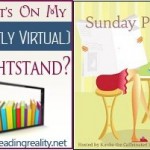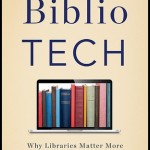Let’s talk about a concept that keeps coming up in the conversation about ebook lending in libraries. The publishers who are currently not participating in the library ebook market all seem to be worrying about the lack of “friction” in the library ebook lending transaction as far as the patrons are concerned.
What do they mean by “friction”?
With physical media, in other words, books and CDs and DVDs, patrons have to come to the library to borrow them and come back to the library to return them. According to the February 10 post in Publisher’s Lunch, forcing patrons to come into the library to borrow ebooks is also the appropriate model for ebook lending. The publishers say they are doing this for the libraries’ own good, to reinforce the concept of the library as destination. Research indicates that ebook users are already “power users” of library resources, regularly visiting their local libraries for programming and to borrow materials, as well as borrowing ebooks online, and doing all those activities in great gulps.
Back to that “friction” thing again. The publishers seem to be laboring under a set of misapprehensions about how “easy” it is to borrow an ebook from a library. Let’s look at that for a moment.
According to the recent report in American Libraries, when ALA President Molly Raphael met with the Big 6 publishers in New York recently, many of the executives from those publishers were laboring under the mistaken belief libraries loaned ebooks to anyone who happened to click through their websites. We all know that’s not the case.
Libraries are responsible to their communities, and their resources are paid for by the taxes raised in those communities. We make our resources available to those who live or own property in the community. Many libraries make arrangements with their neighboring communities to reciprocally serve their patrons.
So it’s not quite as easy as the publishers think. But is it easy?
The so-called “friction” in borrowing an ebook from the library is different than the model the publishers are used to, but it is definitely there.
The hold queues for ebooks are very, very long. A recent article in the Washington Post showed hundreds of people waiting in line for some of the titles. The libraries in the D.C. metro area also have attempted to purchase copies to meet the demand, but the numbers are staggering. Placing a hold for The Girl with the Dragon Tattoo and seeing yourself listed as number 508 in the queue has to be a shock to anyone.
The second piece of grit that causes no end of friction is the general supply of ebooks. Period. When a person logs into their local library’s ebooks collection and wants to read something, anything, but just get a book, right now, can they? The answer generally is only if they understand the system and are willing to take something they may not be familiar with.
Patrons complain, with justification, that everything is out. My LPOW has about 10,000 ebooks on OverDrive. However, if I check to see what a patron might check out, the first several screens all tell me to put myself on the waiting list. It is possible to search for only the titles currently available, but you have to know how to do that. And if you do know, you must search for EPUB, PDF, Open EPUB and Open PDF separately. There’s no option for just ebook. Out of those 10,000 ebooks, there are only 50 science fiction and fantasy titles in today. I did a quick scroll through, and a significant chunk of those are unfortunately mis-categorized. They’re really paranormal romance, which wouldn’t bother me, but would disappoint a lot of readers.
That’s not all the friction in this potential transaction.
Those of us who have been on the receiving end, know that dealing with end-users brings its own variety of friction. Whatever the client program is, whether it is OverDrive’s Media Console or the search program or the patron’s device or any other piece of the puzzle, there is a chain. Server to website to search to download to device to human. Any one of those parts can suffer a classic case of “failure to communicate” and when the chain breaks, the patron calls the library.
OverDrive’s Media Console isn’t quite as intuitive to use as the Kindle app, or the Nook app, or Bluefire. It’s pretty decent, and I frequently use it for EPUB format books, but there are a couple of things that get to me. For example, I can rename books in Bluefire and I can’t in OverDrive.
But the transaction to borrow an ebook in OverDrive far from frictionless. There’s no ability to search all of one type of format. So a patron can’t just search for “ebooks” or just search for “audiobooks”. The format limits are EPUB or PDF, and MP3 Audiobook or WMA Audiobook.
Once you find something you want to borrow, there’s the need for a library card number and a PIN, or personal identification number. Some libraries have made this easy by tying it to something the patron can’t forget, some don’t. But once past that hurdle, there’s the whole download business. If you’re reasonably savvy about your device, it is a piece of cake. With an iPhone or an iPad, there is, of course, an app for that.
Dealing with a side load through Adobe Digital Editions into a Classic Nook the first time is not for the faint of of heart, and not the night before you leave on vacation. Especially not if your flight is at “oh dark thirty”. Of those “power users” that LJ surveyed; 23% have given up on borrowing an ebook from the library because the process was “too complicated”.
If our sophisticated users have difficulty with the process, what about the new ereader users? A lot of people who are not tech-savvy got ereaders because of the convenience factor and the content, but not the “gee-whiz” factor. How “frictionless” will they think the current ebook lending process is?
There is plenty of friction in the ebook borrowing transaction. The libraries are having enough issues ensuring that their interface with living, breathing patrons who use the library is as frictionless as possible.
What we don’t need is publishers telling us that library ebook lending needs more of this so-called “friction” than it already has. What we need is more ebooks in the library market.








My public library separates ebooks and audiobooks into a second catalog. Once you’re there, only about one third of the materials are available. Plus you can only borrow them for seven days while print can be borrowed for 21 days. Let’s lock all the publishers in a big room and see how quickly they can borrow three items.
Hear, hear! The wait times and lack of selection have kept me from taking advantage of ebook lending at my library. It’s really a shame.